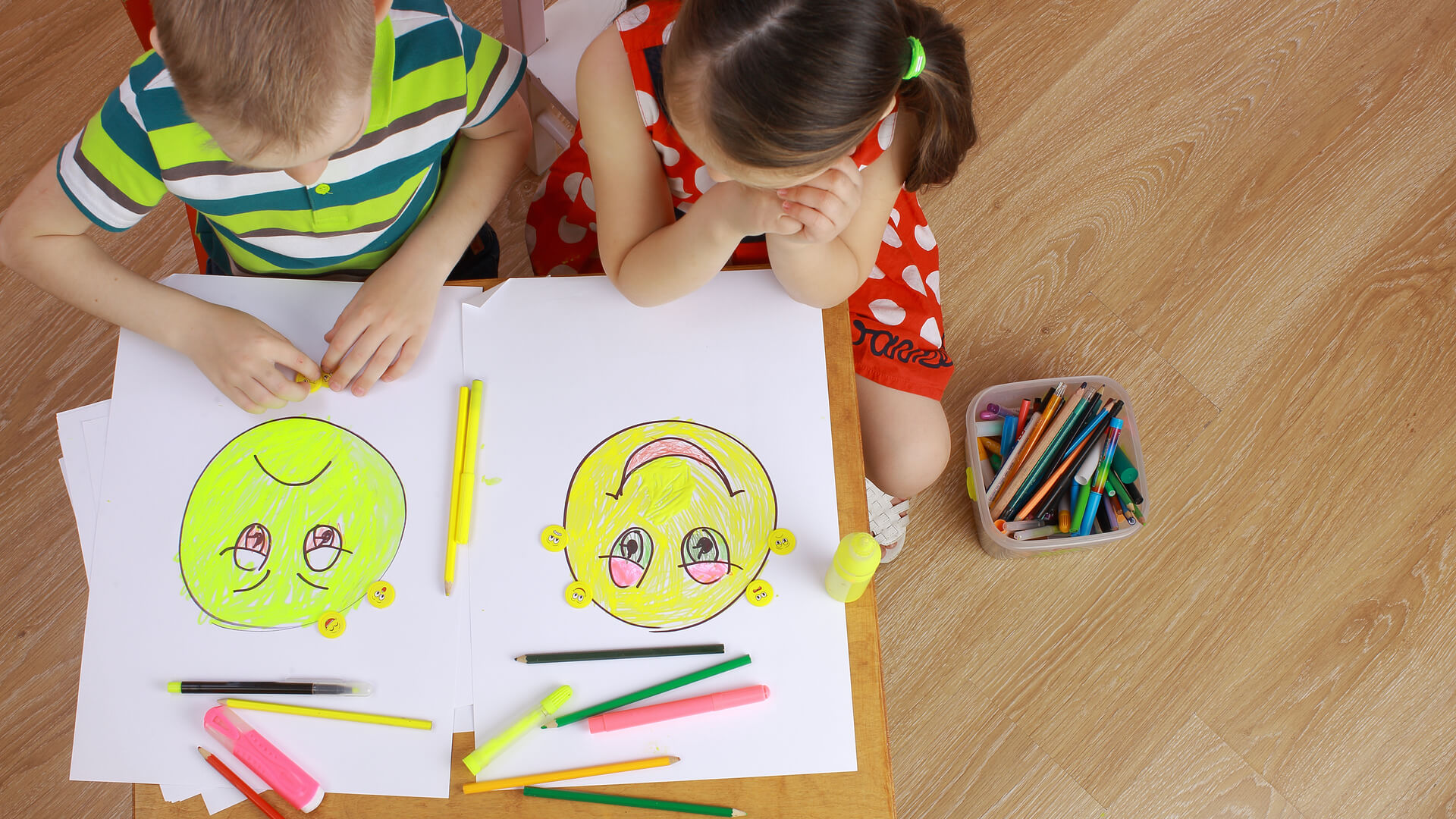How to Teach Kids About Emotions
In This Article
- Teach Kids Simple Feeling Words
- Create Opportunities to Talk About Feelings
- Teach Your Child How to Deal with Feelings
- Reinforce Positive Ways to Express Feelings
- Look for Teachable Moments
As an adult I watched the movie, “Inside Out.” According to IMDb, Riley is a happy, hockey-loving 11-year-old Midwestern girl, but her world turns upside-down when she and her parents move to San Francisco. Riley's emotions -- led by Joy -- try to guide her through this difficult, life-changing event. However, the stress of the move brings Sadness to the forefront. When Joy and Sadness are inadvertently swept into the far reaches of Riley's mind, the only emotions left in Headquarters are Anger, Fear and Disgust. It’s a great movie in that it teaches you that, although times can be sad, you have to be allowed to go through a variety of emotions to grow and develop as a human. It’s important we remember this when teaching our children about emotions…
Let’s be honest, teaching emotions can be very complex because they are abstract; you can’t touch anger, sadness or happiness. It’s also hard to describe how you are feeling, especially if you don’t have the language skills. It's important to begin teaching kids about their emotions as early as possible since their feelings affect every choice they make. Kids who understand their emotions are less likely to act out by using temper tantrums, aggression, and defiance to express themselves.
Teach Kids Simple Feeling Words
When starting out, preschool kids should learn simple words like, happy, sad or mad. Once they develop and mature, they will be able to understand and use more complex words such as frustrated, nervous or disappointed. There’s no need to overwhelm young children with complex words because they won’t remember or use them correctly.

A great way to help kids learn about feelings is to discuss how various characters in books or TV shows may feel. Pause to ask, “How do you think he feels right now?” Then, discuss the various feelings the character may be experiencing and the reasons why.
Another great way to teach words about emotions is by using the Speech Blubs' "What a Feeling" section. Your child will be able to imitate kids, recognise their expressions and identify feelings for each of them. Try it!
Talking about other people’s feelings teaches kids about empathy. Young children think that the world revolves around them, so it’s important to show them that it doesn’t and that other people have feelings, as well. If your child knows that teasing someone would make them sad, they might be less likely to do it.
Create Opportunities to Talk About Feelings
Show kids how to use feeling words in their daily vocabulary. Model how to express feelings by taking opportunities to share your feelings. Say, “I feel sad that you don’t want to share your toys with your sister today. I bet she feels sad too.”
Each day, ask your child, “How are you feeling today?” With young children, use a simple chart with smiley faces if that helps them to pick a feeling and then discuss that feeling together. Talk about the types of things that influence your child’s feelings.
You can also point out when you notice your child might be feeling a certain way. For instance, you can say, “you look really happy that we are going to the playground today!” This will assist children in associating the feeling with the word.
Teach Your Child How to Deal with Feelings
Kids need to learn that just because they are feeling mad or angry that they can hit someone. The main way for them to understand this concept is to teach them better ways to cope with negative feelings. As adults, we might listen to music, go for a run or talk to friends. What works for one person, doesn’t work for the next and the same goes for kids.
It’s important we find out activities that our children enjoy so we can channel their emotions into them when they are struggling. Encourage your child to take a self-timeout. Encourage him to go to his room or another quiet place when he gets upset. This can help him calm down before he breaks a rule and gets sent to timeout.
Reinforce Positive Ways to Express Feelings
Reinforce good behavior with a positive consequence. Praise your child for expressing his emotions in a socially appropriate way by saying things such as, "I really like the way you used your words when you told your sister you were mad at her.”
If this is an area that your child really struggles in, I’ve found that reward systems, like stickers or toys can go a long way in helping children be consistent.

Look for Teachable Moments
Our lives are all about teachable moments when we have children. You're going to need to work with your child on emotions throughout his entire childhood, including the teen years. It's important to continue to have ongoing conversations about how to handle emotions in a healthy way.
When your child makes a mistake, by breaking something out of anger or by giving up when he's frustrating, consider it an opportunity to teach him how to do better next time. Look for teachable moments (and keep in mind there will be plenty of them) to help him find healthy ways to cope with his feelings.
Finally, as adults, when we experience situations where our emotions might seem out of control, model good choices in front of our children. Take them for a walk, talk about it (appropriately, of course) or have a dance party! Children learn by example and emotions are another area that they will watch you!
 By Stacie Bennett
By Stacie Bennett